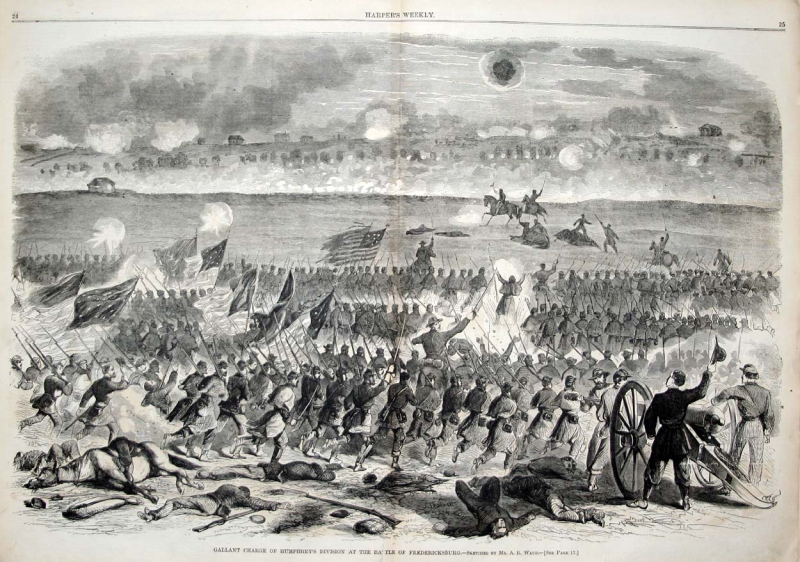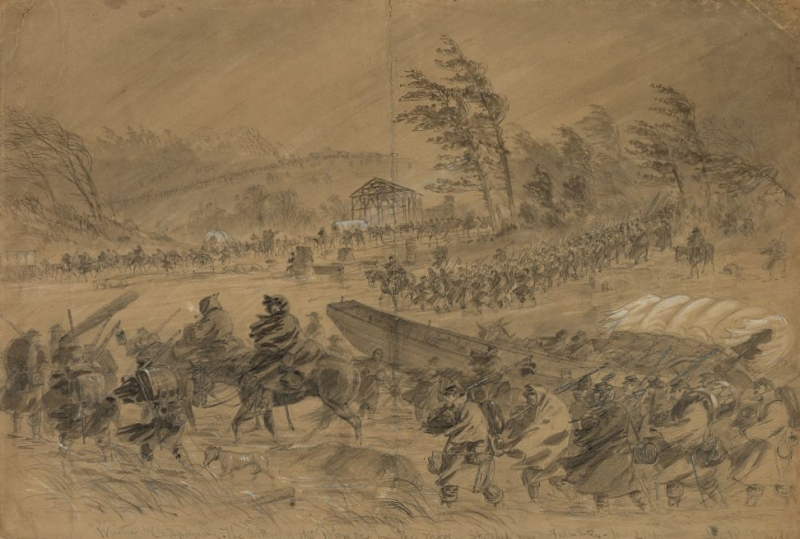Following the Battle of Fredericksburg, Maj. Gen. Ambrose Burnside sought to purge the Army of the Potomac's leadership
One of the most interesting facts about the Battle of Chancellorsville is that Maj. Gen. Ambrose Burnside sought to purge the Army of the Potomac's leadership. Following the Battle of Fredericksburg and the humiliating Mud March in January 1863, the Army of the Potomac suffered from mounting desertions and low morale. Maj. Gen. Ambrose Burnside sought to purge the Army of the Potomac's leadership, dismissing a number of generals he blamed for the tragedy at Fredericksburg. In truth, he had no authority to fire anyone without the consent of Congress.
Burnside's purge failed predictably, and he resigned as commander of the Army of the Potomac to President Abraham Lincoln. He even attempted to resign from the Army outright, but the president persuaded him to stay, reassigning him to the Western Theater as commander of the Department of Ohio. The IX Corps, Burnside's former command, was transferred to the Virginia Peninsula, prompting the Confederates to separate troops from Lee's army under Lt. Gen. James Longstreet, a decision that would be crucial in the next conflict.
Abraham Lincoln had become convinced that the ideal aim for his Eastern army was the army of Robert E. Lee, rather than any physical features such as a capital city, but he and his generals realized that threatening Lee's capital was the most reliable means to draw him to a decisive fight. On January 25, 1863, Lincoln tried a fifth time with a new general, Maj. Gen. Joseph Hooker, a man with a pugnacious character who had performed well in previous inferior posts.












